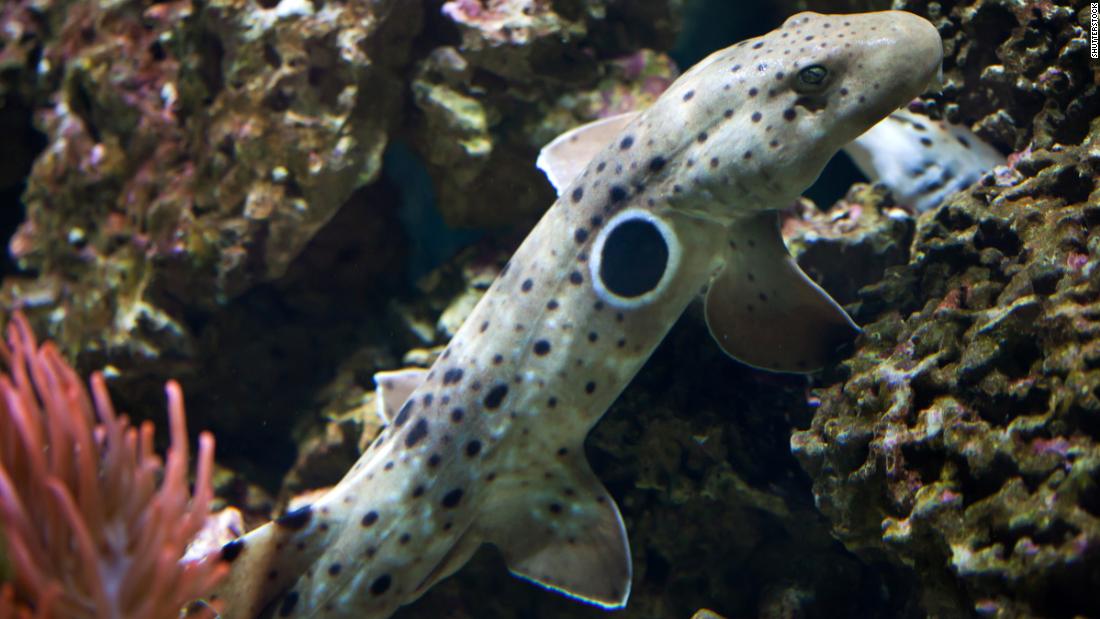
The research team found that in warmer waters, shark embryos grew faster and used their yolk sac – their only food source at this stage of development.
The creatures hatched earlier, were born smaller and needed to eat right away, but lacked energy, researchers at Australia’s ARC Center of Excellence for Coral Reef Studies at James Cook University and the University of Massachusetts said Tuesday.
More than 500 species of sharks live around the world, and the majority give birth to live young. Some shark species, such as epaulette sharks, lay eggs, which are left unprotected and must survive on their own for up to four months.
“The epaulette shark is known for its resilience to change, even against ocean acidification,” Jodie Rummer, co-author and associate professor at the ARC Center of Excellence for Coral Reef Studies, said in a statement. “So, if this species cannot withstand warming waters, how will other less tolerant species fare?”
The Great Barrier Reef is the world’s largest coral reef, covering nearly 133,000 square miles and is home to more than 1,500 species of fish, 411 species of hard corals, and dozens of other species.
Rummer said rising ocean temperatures could threaten future sharks, including egg-laying and living species, because if the temperature rises, the creatures will be born or hatch in environments they can barely tolerate.
“The study offers a worrying future as sharks are already under threat,” lead author Carolyn Wheeler said in a statement.
“Sharks are important predators that keep ocean ecosystems healthy. Without predators, entire ecosystems can collapse, so we must continue to study and protect these creatures,” said Wheeler, a PhD student at the ARC Center of Excellence for Coral Reef Studies. .
“Our future ecosystems depend (on) us taking urgent action to mitigate climate change,” said Rummer.
The study is published in the journal Scientific Reports.
A warmer ocean also contributes to an increase in rainfall and leads to stronger and longer-lasting storms such as Hurricanes Florence and Harvey.
Marine heat waves that have killed parts of Earth’s coral reefs have likely doubled in frequency and are expected to become more frequent and intense, a landmark report by the United Nations Intergovernmental Panel on Climate Change found in 2019.
CNN’s Jen Christensen, Ivana Kottasová and Drew Kann contributed to the reporting.